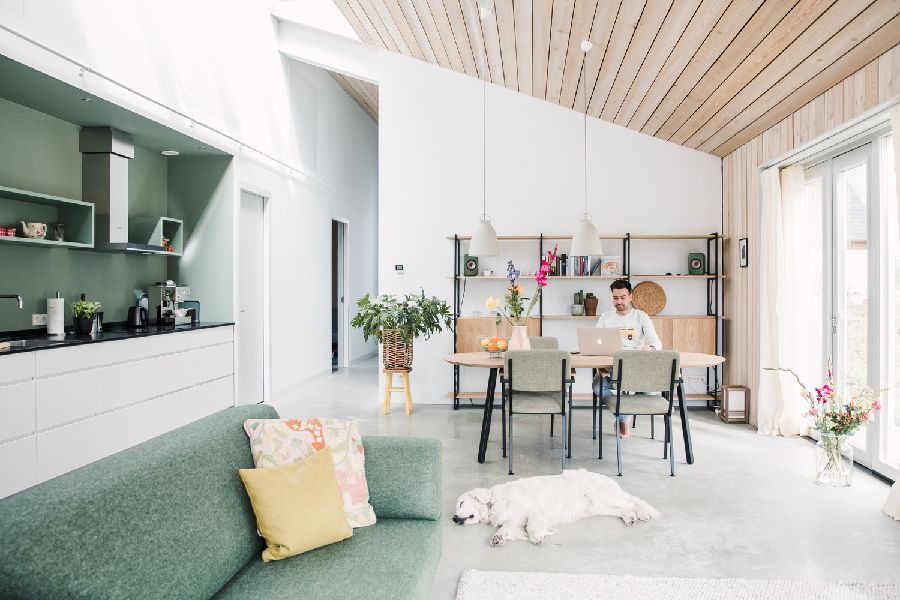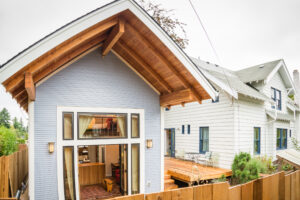
Hydronic heating systems are the golden standard for efficient, aesthetically pleasing, and environmentally friendly home heating systems. Traditional forced-air systems are not only inefficient and costly to maintain, but they are also hazardous to the health of the home’s residents since they can’t keep the house cold or warm simultaneously.
Hydronic underfloor heating systems are only one of the aspects that this article will focus on. Keep reading as we examine the costs and benefits of installing one of the most effective home heating systems on the market!
What Can Hydronic Heating Do?
Hydronic heating utilises the efficient transport of heat through the water due to water’s more significant levels of thermal conductivity. It not only reduces the amount of energy used to heat your house but also lowers your monthly power expenses.
Pipes put in the ceiling, walls, or, ideally, beneath the floor transport heat here. These panels then radiate this heat around your home, using the theory of radiant heating. As a result, you will have a warm and comfortable room with no cold areas to make you feel uneasy.
Heat pumps are a popular alternative for providing the heat needed to power these systems because of their eco-friendly energy design.
What Can Hydronic Cooling Do?
Hydronic cooling is a function of hydronic underfloor heating systems that most people don’t know about.
These systems use the heat transport mechanism explained above to chill your home by pumping cold water via the pipes. Moreover, these gadgets keep houses cool and pleasant more efficiently than typical cooling systems like air conditioners. Because of this, hydronic cooling is a viable option for wise homebuyers, even if you are only interested in heating.
Installation Costs For Hydronic Heating Systems
Getting tricked into thinking that the installation expenses for underfloor heating and heating are too costly is simple to do. However, during the system’s lifespan, not only does the capital pay for itself, but the price also changes.
Price is influenced by how well the system’s pipeline can fit in your home and how much heat you need to provide. The kind of boiler or other heat sources you select will account for a considerable percentage of the overall cost. Additionally, if your design is complicated, you will need some more pipes and require a more time-consuming installation process, raising the entire cost. The type of flooring you select has an impact on the final price as well.
Because of this, it is essential to contact specialists before purchasing and installing hydronic heating systems.
What Makes Hydronic Heating Systems Superior To Forced-Air Systems?
Both systems have advantages and disadvantages, but hydronic heating systems are always the winner since they are more efficient and offer more health and environmental benefits.
With any of these thermostats, you can independently manage the temperature in different rooms in your home. As a result, you will be able to save money and energy by heating what is being used!
Hydronic solutions, however, are more successful in ensuring a healthy and comfortable atmosphere. Improved temperature control is possible because of the absence of cold patches and draughts. It is also possible to develop and decorate your home precisely as you like because there are no big gadgets.
What Are The Most Effective Uses Of Hydronic Heating?
Many factors determine the best heating system for your facility or building, including the kind of construction (new or renovation), architectural components, finishing materials, design, and occupant loads. Hydronic heating may be included in new buildings to maximise energy efficiency as part of the overall building design and used in combination with other heat sources, like geothermal.
Furthermore, hydronic heating is a viable option for new construction and restoration, depending on how effectively the system is incorporated into the overall design. It can insulate concrete walls and floors with tubing for optimum temperature distribution. Subfloors, like hardwood stones or tile, can also be used to place the tubing. The efficiency of the system’s heat transmission and the occupants’ thermal comfort are strongly influenced by the finish materials used.
Choose Your Finished Materials Carefully and Consider Hydronic Heating Systems
Depending on their thermal qualities, the finishing materials influence how well heat is transmitted from one place to another. Materials like fibreglass have poor heat conductivity, making them ideal for insulation. This finish might not have been the best choice to use with hydronic heating when it comes to floors like carpeting, which has low thermal conductivity. On the other hand, stone, ceramics, concrete, and hardwoods are all superior materials.
Conclusion
Hydronic heating and cooling systems quickly become standard in many commercial and residential buildings. It is hard to overstate the value of these systems, which promise a comfortable and cost-effective house throughout the year. It may equip your house with uncontestable home heating systems by selecting the appropriate techniques and service providers. These systems will transform your space into an oasis of happiness and joy.







